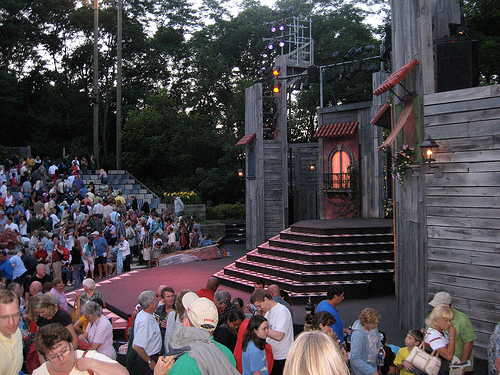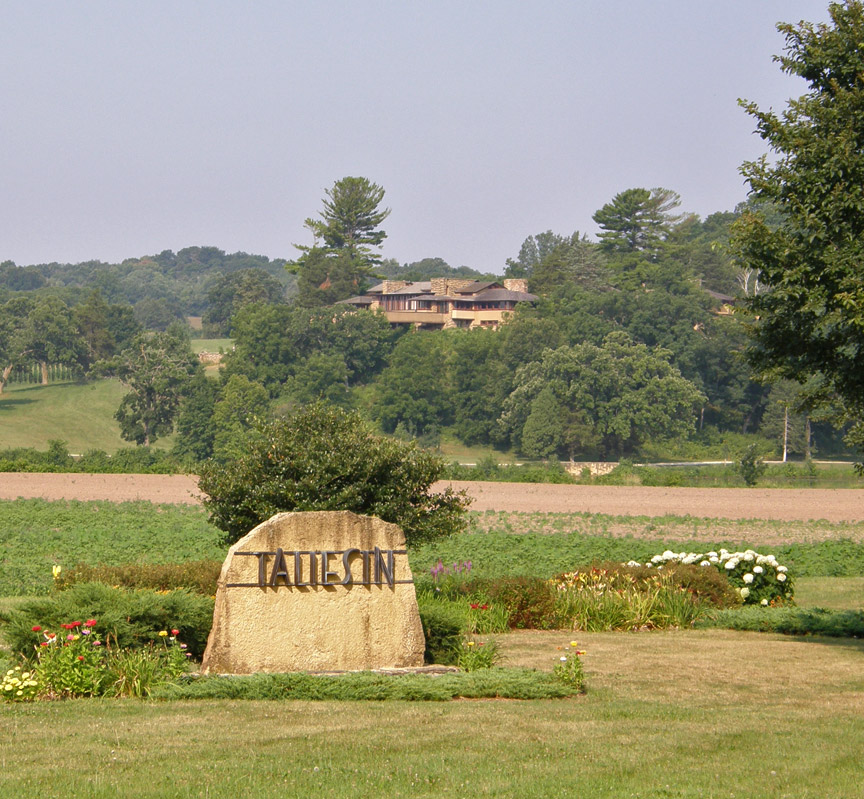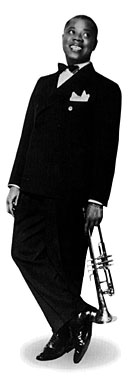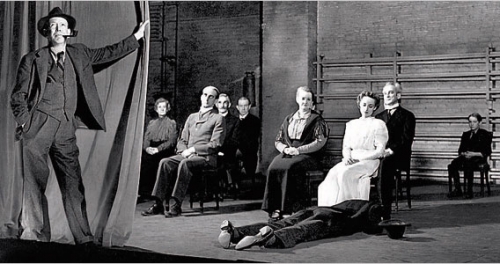“Silence and darkness were all I craved. Well, I get a certain amount of both. They being one.”
Samuel Beckett, “Play”
Archives for August 2008
TT: Snapshot
Mark Morris dances “Dido’s Lament” from his staging of Purcell’s Dido and Aeneas, featuring the Mark Morris Dance Group:
(This is the latest in a weekly series of arts-related videos that appear in this space each Wednesday.)
TT: Almanac
“Silence remains, inescapably, a form of speech.”
Susan Sontag, “The Aesthetics of Silence”
TT: Closing the shop
 Mrs. T and I are in Spring Green, Wisconsin, home of American Players Theatre, an outdoor amphitheatre where we’ll be seeing A Midsummer Night’s Dream tonight and George Bernard Shaw’s Widowers’ Houses on Wednesday. I last visited Spring Green three years ago as part of a week-long marathon trip across the state during which I also stayed in two Frank Lloyd Wright houses.
Mrs. T and I are in Spring Green, Wisconsin, home of American Players Theatre, an outdoor amphitheatre where we’ll be seeing A Midsummer Night’s Dream tonight and George Bernard Shaw’s Widowers’ Houses on Wednesday. I last visited Spring Green three years ago as part of a week-long marathon trip across the state during which I also stayed in two Frank Lloyd Wright houses.
Here’s part of what I wrote about the company in 2005:
I started my week-long sweep across the state in Spring Green, a microscopic village (pop. 1,444) with two giant-sized claims to fame. Not only is it the site of Taliesin, Frank Lloyd Wright’s eminently tourable home and headquarters, but just down the road from the Wright Visitors’ Center is the American Players Theatre, a summer-and-fall repertory company that bills itself as “the most popular outdoor classical theater in the country.” Located in a hollow at the top of a thickly wooded hill (it’s a ten-minute walk from the parking lot to the theater), APT presents five plays each season in a 1,148-seat open-air amphitheater blessed with flawless acoustics.
Scenery isn’t everything, natural or otherwise, but APT fills its naturally beautiful performing space with crisply staged classics that I might call “Broadway-quality” if I’d seen a Broadway revival lately that was half so good….
 Today we’ll be touring Taliesin, escorted by my friend Keiran Murphy, who showed me around on my last visit, an experience that ranks very high on my list of memorable days. I’ll be surprised if Mrs. T doesn’t find it equally entrancing.
Today we’ll be touring Taliesin, escorted by my friend Keiran Murphy, who showed me around on my last visit, an experience that ranks very high on my list of memorable days. I’ll be surprised if Mrs. T doesn’t find it equally entrancing.
I wrote and filed three pieces last week, meaning that I don’t have to write anything else until we return home on Thursday night–a good thing, too, since I hate writing in hotel rooms and am still worn out from my recent travels. We’re staying at the House on the Rock, a resort-attraction-inn (as the Web site describes it) that defies description, so I won’t try to describe it, or anything else.
The truth is that I’m written out, too, and so won’t be hearing from me again until next week, except for the usual almanac postings and theater-related stuff. A little silence never hurt anybody, least of all me.
See you around!
TT: Up front
 I’ve settled on the epigraphs for Rhythm Man: A Life of Louis Armstrong.
I’ve settled on the epigraphs for Rhythm Man: A Life of Louis Armstrong.
The first one comes from a letter written by Armstrong shortly before his death in 1971:
Now I must tell you that my whole life has been happiness.
The second one is a remark made by the great Romanian sculptor Constantin Brancusi:
Don’t look for obscure formulas, nor for le mystère. It is pure joy I’m giving you.
 The Brancusi quote exists in numerous variants, and I went to a good deal of trouble to track it to what appears to be its original source.
The Brancusi quote exists in numerous variants, and I went to a good deal of trouble to track it to what appears to be its original source.
The Armstrong quote was originally published in Louis: The Louis Armstrong Story 1900-1971, a book by Max Jones and John Chilton, and is well known to Armstrong scholars.
Here it is in context:
Now I must tell you that my whole life has been happiness. Through all of the misfortunes, etc., I did not plan anything. Life was there for me and I accepted it. And life, what ever came out, has been beautiful to me, and I love everybody.
I hope I feel that way when I’m seventy.
TT: As it happened
If you read last week’s posting about my recent visit to the New Hampshire graveyard that is thought to have inspired the final scene of Thornton Wilder’s Our Town, you may be interested in seeing this photograph of the original 1938 Broadway production. The man with the pipe is Frank Craven, who created the role of the Stage Manager and is about to deliver his closing monologue.

TT: Almanac
“Silence is the general consecration of the universe. Silence is the invisible laying on of the Divine Pontiff’s hands upon the world. Silence is at once the most harmless and the most awful thing in all nature. It speaks of the Reserved Forces of Fate. Silence is the only Voice of our God.”
Herman Melville, Pierre
TT: Credo
John Russell, who wrote for the New York Times for many years, died on Saturday. His Times obituary included the following quote from Reading Russell, a collection of his critical essays:
I do not see my role as primarily punitive. There are artists whose work I dread to see yet again, dance-dramas that in my view have set back the American psyche several hundred years, composers whose names drive me from the concert hall, authors whose books I shall never willingly reopen. But it has never seemed to me much of an ambition to go though life snarling and spewing.
I very much wish I’d said that. It’s exactly how I feel about what I do, and now that I’ve seen it put so lucidly, I mean to try even harder to live up to it.
